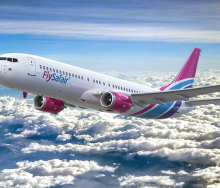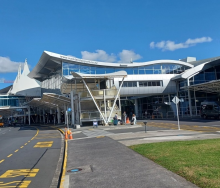The most damaging – and controversial – phobia that is limiting innovation in the travel industry today is the fear of being out in front.
This is the opinion of US-based travel procurement specialist, Scott Gillespie, Founder and CEO of tClara, who elaborates that too many TMCs have become reluctant to try out new things for fear a bad outcome will damage client relationships.
The solution, he believes, is for TMCs to find clients willing to pilot innovations in a small-scale, low-risk way, where everyone can learn from the experience. “Position ‘failure’ as a stepping stone towards eventual success. Clients are hungry for innovation. They will appreciate a risk-reduced approach,” he advises the trade.
Kananelo Makhetha, CEO of Club Travel Corporate, agrees. “It does make sense and it is a standard way of new product or service development to test the concept with an existing client before you launch into the bigger market. However TMCs are even more cautious now due to the impact of COVID-19 on their financial strengths. Be that as it may, the pace of innovation has been accelerating.”
Sure Travel Group CEO, Vanya Lessing, believes that innovation is associated with change and risk so companies have to lead boldly. “It’s do or die. Customers want faster lead times, expanded products and services as well as tailored experiences. The ‘voice of the customer’ must be the driver of innovation.”
Melissa Nortje, Executive Head: Strategy, Development and Marketing at First Car Rental/SIXT Rent a Car, says the lack of independent technological advancement is the biggest challenge presently impacting the relationship between the car-rental sector and the retail travel trade.
“There is movement by some of the consortiums to develop their own platforms and efforts to improve on previous attempts, but unfortunately it seems like the early adopters and disruptors continue to take away from what was once a well-distributed network with a wealth of travel knowledge and authentic consultancy, which had real value.”
She says, unfortunately, the market expects everyone not only to have content and traditional bookability, but also an ability to manage an integrated approval process with true connectivity and live availability, while offering data access and reconciliation tools for reporting.
African Business Travel Association (ABTA) founder, Monique Swart, thinks there is always a balance and it is vital to ensure that a new concept is correctly communicated, with its tangible benefits highlighted. “This element is sometimes missed – getting into the corporate travel buyer’s head to understand what makes the person tick.”
Fear, she says, is usually of the unknown, but once the unknown is here, you just have to deal with it. “As an industry, we have – mostly – survived one of the most catastrophic events in history so we know that our industry is one of the most survival-based and resilient industries that exist.”
In a way, she says ABTA has looked at this for its upcoming 2022 annual conference in September: what elements have and always will work? “Let’s keep those for some sense of continuity. And then where do we need to shake things up because … well, it’s time!”














